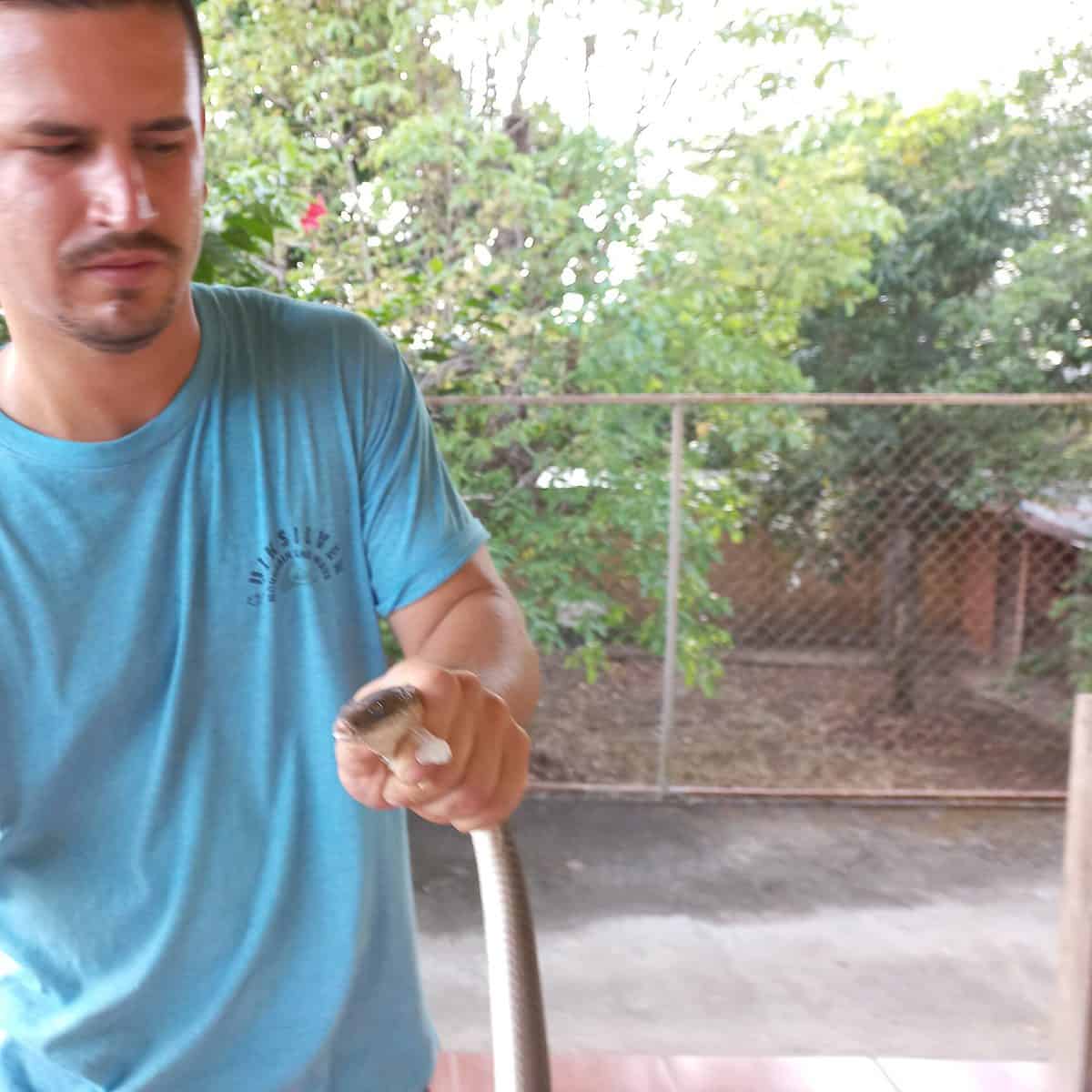What should you do if you find a snake in your house?
Scream and run out the door?
Get the broom and sweep it out?
Or call an expert to remove the snake and take it to some place where it would be happier?
If you live in the area around Turrucares de Alajuela help is close at hand
because Roberto Poirier has been catching snakes and relocating them for many of his 32 years. He has captured all kinds from the highly poisonous terciopelo or bushmaster to the gentle and sleepy looking boa constrictor, known as a bequer here. He has been bitten twice, once by an inoffensive sabanera y once by a bush master. Snake bites, even non poisonous ones need immediate medical treatment, he says. For poisonous bites there is the anti dote developed here by the Instituto Clodomiro Picado but all bites cause reactions. Poirera also had a tetanus shot. Just in case.
Poirier began his interest in snakes at a very early age by watching his father capture them and relocate them on a remote, far from human habitation, property owned by the family. Instead of being alarmed that their son liked snakes, his parents encouraged him to read and learn more. A few years ago he completed the courses on forest and wildlife management and received a degree as a wildlife engineer (ingeniero de vida sylvestre) at the University of Costa Rica’s technical campus in Balsa de Atenas.
He says that he has captured and relocated hundreds of snakes, many from in or near houses and it is risky even for an expert. One difficult rescue meant crawling into the space between the ceiling and the roof where in addition to a snake there was a wasp nest. He managed to remove the snake without arousing the wasps. He gets about three calls a week from people needing help, or least advice, but it varies according to the time of the year.
The rainy season brings out more snakes. The dry season brings out animals looking for water. Poirera has also rescued and relocated racoons, porcupines and possums. They may look cute and cuddly at a distance, but they have sharp teeth, he says. All wild animals pose a risk. Poirier advises that if you find a snake in your house keep an eye on it while you call for help but be prudent. Don’t try to capture it yourself.
Costa Rica has 136 different types of snakes, only 18 are poisonous but, according to SINAC, or Sistema Nacional de Areas de Conservación de Costa Rica, which coordinates all wildlife activities, most people don’t know the difference.
For Poirier it is not just the challenge of working with wild animals. He believes in conservation and role that snakes play in the scheme of nature. Costa Rica’s law, L 7317 prohibits the killing of any wildlife and SINAC is charged with protecting all wildlife, plants and animals. The public has also become more aware of the need to protect wildlife.
Poirier also gives talks on snakes and wildlife to schools and students, and has been a consultant for the national fire department on capturing snakes. Fire departments or bomberos, also have technicians for capturing snakes and other wild animals. Poirier can be reached at his phone 6411-2589. or on facebook, encuentros peligrosos costa rica, or through roberto poirier cazador de culebras.
Poirier would like to find a sponsor to help with his rescue work. He wants to add aquarium-like cases for holding snakes and wildlife while waiting to relocate and also add on more sophisticated equipment. If you want to help contact him at the sites above.






